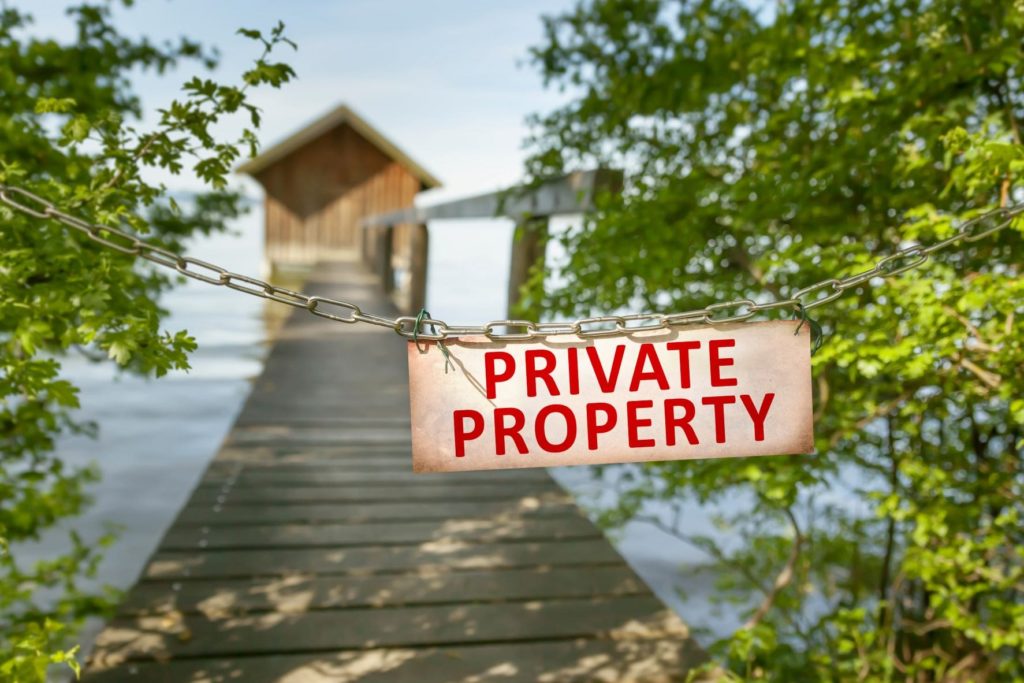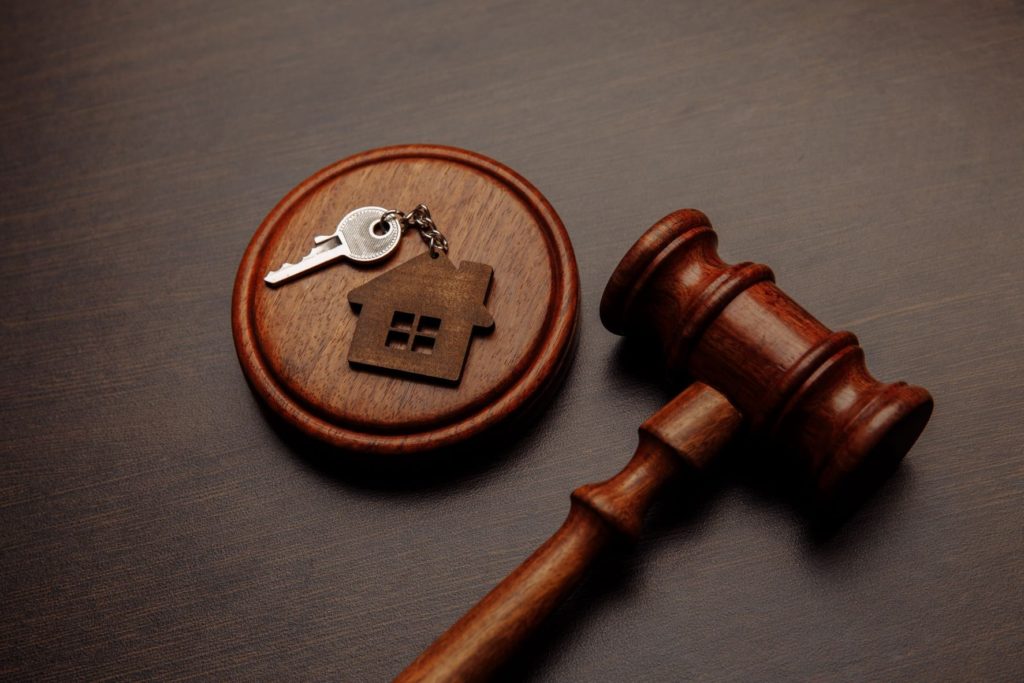
What is Private Property?
Real Estate Law in Florida

Private property is any physical property ownership that is exclusive to an individual or group. In the United States, real estate is typically considered private property. That means if you own a home, land, or commercial space, you have the right to do with it as you please within the confines of state and local laws.
In Florida, real estate law falls under the jurisdiction of each individual county. As such, there are some general rules and regulations that all counties must follow, but there is also some variation from one county to another. For example, in Hillsborough County, real estate taxes are due on November 1st each year. In Pinellas County, they are due on March 31st.
It’s important to be aware of the laws in your county so that you can be a good steward of your property and avoid any potential penalties. For instance, if you fail to pay your real estate taxes on time, you may be subject to interest and late fees.
Of course, there are some exceptions to these rules. For example, you cannot use your property in a way that violates environmental laws or zoning regulations.
What are My Rights as a Property Owner?
As a property owner, you have certain rights and responsibilities. These include the following:
- The right to exclusive possession and use of your property
- The right to sell or lease your property
- The right to develop or make changes to your property
- The responsibility to pay taxes on your property
- The responsibility to follow zoning laws and other regulations
- The responsibility to not engage in illegal activities on your property
The Origins of Private Property
 The origins of private property go back to the very beginning of human history. Our ancestors first started to live in groups, which gave them a survival advantage over those who lived alone.
The origins of private property go back to the very beginning of human history. Our ancestors first started to live in groups, which gave them a survival advantage over those who lived alone.
As time went on, they began to develop ways to cooperate, and division of labor emerged. This allowed them to produce more than they could if they were each working independently.
The division of labor also meant that some people became better at certain tasks than others. For example, one person might be good at hunting while another is good at gathering fruits and vegetables.
To get the most out of the division of labor, people began to trade with each other. They would trade the things they were good at for the things that someone else was good at in order to get what they wanted.
At first, people would just trade goods and services for other goods and services. But then, they began to use things that everyone agreed had value as a way to trade. For example, they might use shells or rocks as a way to trade for something else. Eventually, people began to use money as a way of trading. Money is an easy way to trade because it can be used to buy anything that someone else has.
The concept of private property developed out of the need for people to have a way to protect the things that they owned. People needed to know that the hunting tools or the food that they gathered would be there when they went back for them.
In Florida, private property rights are established and protected by the state constitution and various state laws. These rights include the right to possess, use, and enjoy the real property as well as the right to sell, lease, or borrow against it.
The value or importance of private property rights can be seen in many different ways. For some people, private property represents a way to ensure that they have a roof over their heads and food on the table. For others, it may represent a way to build wealth or generate income.
In any case, private property rights are an important part of Florida real estate law and homeownership.
The importance of property rights has been debated throughout history. Some people believe that property rights are natural, while others believe they are a social construct.
In any case, private property rights are an important part of Florida real estate law and homeownership.
A buyer should know that real estate law in Florida gives them the right to a home that is free of any defects that would make it uninhabitable. A seller should know that real estate law in Florida requires them to disclose any material defects about the property. Both buyers and sellers should be aware of their rights and responsibilities under Florida real estate law before entering into any transaction.
Florida Real Estate Law
Florida Real Estate Law is a body of law that governs the rights and duties of parties involved in real estate transactions. It is important to know Florida Real Estate Law if you are thinking about buying or selling property in the state. This includes, but is not limited to:
- Contracts
- Leases
- Mortgages
- Title disputes
Homeownership is the process of acquiring ownership of a home through purchase, inheritance, or other means. Once you own a home, you have the right to live in it, make changes to it, and sell it. You also have the responsibility to maintain it and pay taxes on it. Homeownership is a big responsibility, but it can also be a great way to build equity through assets.
Homeownership is best described as the act of owning or having legal title to a home.
The person who owns the property is known as the homeowner. Homeownership entitles the owner to exclusive use and enjoyment of the property.
It also gives the owner certain rights and responsibilities, such as the right to sell the property or pass it on to heirs. In most cases, only citizens or legal residents of the United States can purchase and own property in Florida. However, there are some exceptions to this rule. For example, foreign investors may purchase property through a limited liability company (LLC).
What is a Limited Liability Company?
A limited liability company is a business entity that is legally separate from its owners. This means that the LLC, not the owners, is liable for any debts or obligations incurred by the company.
Another exception to the rule prohibiting foreigners from purchasing property in Florida is if the property is purchased for investment purposes only. In this case, the foreign investor must obtain a special visa known as an EB-5 visa. An EB-5 visa allows foreigners to live and work in the United States if they invest a certain amount of money in a U.S. business. The investment must create or preserve at least ten full-time jobs for U.S. workers.
Private property rights are an important part of real estate law in Florida. These rights give property owners the ability to use, possess, and dispose of their property as they see fit.
Private property rights also include the right to exclude others from your property. This means that you can choose who has access to your property.
Florida real estate law also allows for joint ownership of property by two or more people.
This type of ownership is known as the “tenancy in common” and allows each owner to pass their ownership interest down to their heirs.
Another type of joint ownership is known as “joint tenancy with right of survivorship.”
With this type of ownership, if one of the owners dies, their ownership interest passes to the surviving owner or owners. Joint tenancy with the right of survivorship is often used by married couples.
Florida real estate law also contains provisions for what happens to property when an owner dies without a will. In this case, the property is distributed according to the laws of intestate succession. Under Florida law, a decedent’s spouse is entitled to the first $60,000 of the decedent.
The state can take your property through the process of eminent domain. Eminent domain is the power of the government to take private property for public use. The Fifth Amendment to the U.S. Constitution protects citizens from having their property taken by the government without just compensation.
Just compensation is defined as the fair market value of the property at the time it is taken.
The government must also have a legitimate public purpose for taking the property, such as building a road or school. If you think your property has been taken by the government without just compensation, you can file a claim in court.
Common disputes involving property owners include the following:
- Boundary disputes with neighbors
- Zoning disputes with the government
- Eminent domain (condemnation) cases
If you have a dispute with a neighbor, the first step is usually to attempt to resolve it informally. If not, then you can file a lawsuit in court.
If you want to sell your real property, there are a few things you should do:
- Check with your local government to see if there are any zoning restrictions or other regulations that would limit what the buyer could do with the property.
- Make sure that there are no outstanding liens or other claims against the property.
- Get a professional appraisal of the value of the property.
- Find a real estate agent who is familiar with the area where the property is located.
- Negotiate the sale price with the buyer.
- Have a lawyer prepare or review the documentation for the sale.
- Pay any outstanding taxes and other fees associated with the sale of the property.
- Transfer ownership of the property to the buyer.
After you have sold your real estate, you will need to file a deed with the county recorder’s office. The deed should include:
- The names of the current owner (seller) and new owner (buyer)
- A legal description of the property
- The date of the sale
- The purchase price of the property
The real estate agent or lawyer who handled the sale can usually prepare the deed for you. Once the deed is filed, it becomes a matter of public record.
Taxes are always a major consideration when buying or selling property. When you sell real estate in Florida, you are responsible for paying:
- Federal capital gains tax
- State capital gains tax
- Transfer taxes
The amount of tax you will owe depends on several factors, including how long you owned the property and your profit from the sale. You should speak to an accountant or tax lawyer before you close on the sale of your real estate to get an estimate of what your taxes will be.
As a homeowner in Florida, you have certain rights and responsibilities. These include the right to:
- Live in a safe and habitable home
- Not have a landlord enter your home without permission or notice
- Be free from discrimination
- Receive a written lease if you have a year-long tenancy
- Have repairs made promptly
One area where local governments have become increasingly restrictive is the maintenance of trees on private property. Many cities and counties require a permit before trimming or removing trees. Certain ordinances also restrict the types of trees that can be removed from a property.
Some of your responsibilities as a homeowner include:
- Paying rent or mortgage on time
- Keeping the property clean and safe
- Not causing damage to the property beyond normal wear and tear
If you are having problems with your landlord or roommate, you can contact the Florida Department of Agriculture and Consumer Services for assistance. You can also file a complaint with the Florida Real Estate Commission if your landlord is not following state law.
Discover Real Estate Law in Florida at Galaxy Title & Escrow
 Real estate law in Florida includes a diverse set of responsibilities and regulations to protect your property. Owning property demands attention and direct action to ensure the safety of your investment.
Real estate law in Florida includes a diverse set of responsibilities and regulations to protect your property. Owning property demands attention and direct action to ensure the safety of your investment.
It is valuable to find the right guidance for purchasing or selling property. Galaxy Title & Escrow can assist you in making sure your property’s title is clean and clear. If you are in the market for a real estate transaction in South Florida, reach out to our office today.
